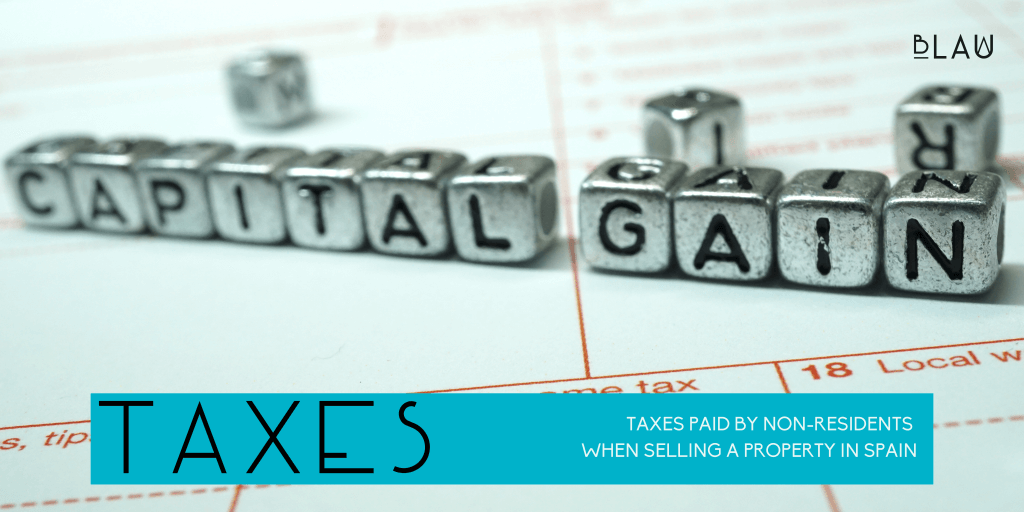Taxes of buying & selling a property in Spain
Introduction to the tax landscape for property transactions in Spain
Deciphering the Spanish property tax maze
Engaging in property transactions in Spain, whether as a buyer or seller, involves navigating a series of taxes and duties. While the allure of Spanish real estate is undeniable, it’s essential to be well-informed about the financial implications to avoid unexpected costs. This guide provides a comprehensive overview of the taxes associated with property transactions in Spain, ensuring that you’re well-prepared for your property journey.
Key taxes when buying a property in Spain: What buyers should know
Transfer Tax (Impuesto de Transmisiones Patrimoniales – ITP): The tax on second-hand properties
When purchasing a second-hand property in Spain, buyers are subject to the Transfer Tax. The rate varies by region, typically ranging between 6% to 10% of the property’s value. It’s crucial to check the specific rate for the autonomous community where the property is located, as this can significantly impact the overall cost of the purchase.
Value Added Tax (VAT) and Stamp Duty: Costs for new properties
New properties, those purchased directly from developers or constructors, come with their set of taxes. Instead of the Transfer Tax, buyers are subject to VAT, which stands at 10% for residential properties. On top of this, there’s the Stamp Duty, which can range from 0.5% to 1.5%. These combined costs can add a significant amount to the property’s purchase price, so it’s essential to budget for them.
Navigating Notary and Land Registry Fees: Essential administrative costs
While buying a property, there are certain administrative procedures that require payments. Notary fees, for the property deed’s official notarization, and Land Registry fees, for registering the property under the new owner’s name, are two such costs. Typically, they sum up to about 1% of the property’s purchase price, but this can vary based on the property’s location and value.

Essential taxes when selling a property in Spain: A seller’s guide
Capital Gains Tax: Understanding profit taxation
When selling a property at a profit, sellers are liable to pay the Capital Gains Tax. This tax is calculated on the profit made from the sale, i.e., the difference between the purchase and selling price. For non-residents, the rate generally ranges between 19% to 23%. However, various factors, including the duration of property ownership and the seller’s tax residency status, can influence the exact rate.
Plusvalía Municipal: The local tax on land value increase
This is a unique tax levied by local town halls in Spain. It’s based on the increase in the land’s value since the last transfer. The exact amount depends on factors like the property’s location and the duration of ownership. It’s essential to consult with the local town hall or a tax expert to determine the exact amount payable.
Withholding Tax for non-residents: A buyer’s responsibility
In transactions where the seller is a non-resident, the buyer has an additional responsibility. They must withhold 3% of the purchase price and pay it to the Spanish tax authorities. This acts as a provision against the non-resident seller’s potential capital gains tax liabilities.
Maximizing tax benefits and deductions: Making the most of your property transaction
Exploring deductions for permanent residents
Spain offers certain tax benefits for its permanent residents. For instance, if they reinvest the proceeds from a property sale into another primary residence in Spain, they might be eligible for capital gains tax deductions. Such benefits can lead to substantial savings, making it crucial for sellers to be aware of them.
Understanding tax exemptions for senior sellers
Spain values its senior citizens and offers specific tax benefits for them. Sellers aged over 65 who have lived in their property as their primary residence for more than three years might be exempt from capital gains tax. This can lead to significant savings, especially for properties that have appreciated considerably over the years.
The importance of expert guidance in Spanish property transactions
Why seeking professional advice is crucial
The Spanish tax system, especially concerning property transactions, can be intricate. Misunderstandings or oversights can lead to hefty penalties or missed savings opportunities. Therefore, whether you’re a buyer or a seller, it’s highly recommended to seek guidance from tax professionals or legal experts familiar with Spanish property taxes. Their expertise can ensure a smooth transaction, compliance with all regulations, and optimization of potential tax benefits.
Frequently asqued questions about expats with real estate in Spain
When buying a property in Spain, you’ll primarily need to consider the Transfer Tax (ITP) for second-hand properties or Value Added Tax (VAT) and Stamp Duty for new properties. Additionally, there are Notary and Land Registry Fees that, while not taxes, are mandatory costs associated with the purchase.
The Capital Gains Tax is calculated based on the profit made from selling the property. This profit is determined by subtracting the original purchase price and associated costs (like legal fees and property improvements) from the selling price. The resulting amount is then taxed at a rate that varies based on factors like the seller’s tax residency and duration of property ownership.
Yes, when selling a property, you might be liable for the Plusvalía Municipal, a local tax levied by town halls based on the increase in the land’s value since the last transfer. The exact amount varies based on the property’s location and the duration of ownership.
While non-residents are subject to a withholding tax when selling, they can later claim deductions or refunds if the actual capital gains tax owed is less than the withheld amount. Additionally, non-residents from the EU, Iceland, or Norway can benefit from certain deductions available to Spanish residents, like the over-65 exemption, under specific conditions.
If the seller is a non-resident, the buyer is responsible for withholding 3% of the purchase price and paying it to the Spanish tax authorities. This acts as a provision against the non-resident seller’s potential capital gains tax liabilities. It’s crucial for buyers to ensure this to avoid any future legal complications.
To maximize tax benefits, it’s essential to stay updated with the latest tax regulations, explore available deductions, and consider factors like reinvesting in a new primary residence. However, the best approach is to consult with a tax professional or legal expert familiar with Spanish property taxes. Their guidance can help you navigate the tax landscape effectively and optimize potential benefits.
Related post about taxes of buying/selling a property in Spain
Contact us

